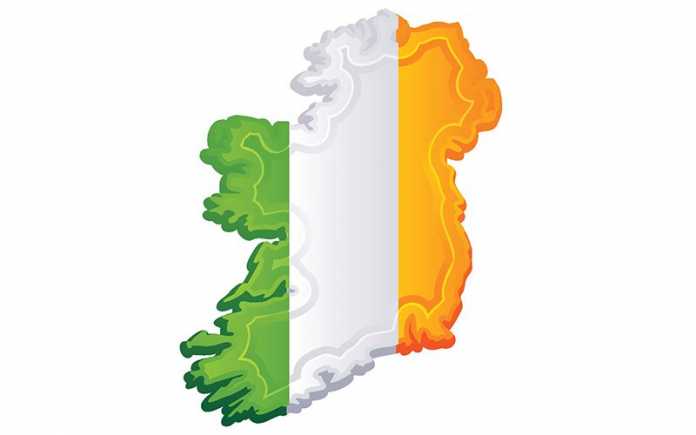
Our day will come

Unlike me however, his doodles didn’t document his taste in music. Nor did they offer an insight into his favourite sports. No, his were a little bit different. One day, having been jettisoned from the back of the class to the front for a crime I didn’t commit, I got to see them up close, and they baffled me almost as much as the stuff coming out of the teacher’s mouth.
“Hey, what does that mean?” I asked, pointing to a phrase he’d written in heavy black ink across the back of his maths book.
“Are you for real?” he replied, not even trying to conceal his disgust.
I stared at him, nonplussed. The words on his book were in Irish. I was rubbish at Irish.
“Tiocfaidh ár lá,” he hissed, “our day will come.”
“What day?”
He rolled his eyes so vigorously I thought they were about to fall out of his head, and that brought an end to the conversation.
You’re probably rolling your own eyes now, scarcely able to comprehend my ignorance. In my defence, I was fifteen, had little interest in politics, and, most tellingly, had spent much of my childhood living in the UK. This didn’t mean I’d grown up idolising the Queen, far from it; if anything, my family tried even harder to imbue with Irishness, bellowing rebel songs into my scared little English face, regaling me with tales of Black and Tans, and bitterly referring to me as a ‘limey’ until the Mancunian accent was bet out of me.

Don’t get me wrong, I think it’d be nice if Ireland was made whole again, it’d be a cause for real celebration, a right good knees-up; I’m getting teary-eyed just thinking about it. Which is apt, because any attempts to banish the border and unify the country would, in the current climate, lead to nothing but tears. Blinded by our own romanticism we seem unable to fully comprehend the complications involved, the heartache it would cause, and the potential dangers, both financial and societal.
Buoyed by Brexit and its potential fallout, one of our most prominent political parties has begun trading on this romanticism, building its entire manifesto around a dream which, were it to become a reality, would quickly turn into a nightmare. This is lowest common denominator politics, almost Trumpian in its absurdity; waving an ideology in front of the most ideological and hoping it will carry you all the way to office.
And it may very well do, because this simple message, this promise to reunite the country, to banish the Brits for good and take back what is rightfully ours, resonates more deeply than any vow to cut taxes, to build houses or improve healthcare. It goes deep into our core, to our heritage, to our mad little Irish souls. It evokes memories of Fionn Mac Cumhaill and Cú Chulainn, gets us singing sorrowful odes to those who died for our freedom, and stirs up a feeling of grievous injustice which, if harnessed correctly, could spark a revolution.

Life in the North is evolving, slowly perhaps, but evolving nonetheless. The rampant sectarianism which has characterised its entire existence is still there, but, thanks to the legacy of The Good Friday Agreement, it’s not as deeply felt as before. New generations, with new attitudes, are springing up, for them being unified with one side or the other is not the primary concern. It’s not about being British or Irish anymore, or even Catholic or Protestant. It’s taken years to get to this point, to a stage where life in the North is about more than tribalism, more than division, where its citizens can unite with one another as a nation in of itself. Why scupper all this now? Why allow pious sentimentality to destabilise a country just finding its feet?
And while the societal changes could be catastrophic, and lead to anarchy on both sides of the border, the financial implications are equally as concerning. You might not have noticed, but this country, the Republic of Ireland, is finally starting to right itself after nearly a decade on its arse. Even so, we are still a long way off competency; our homelessness problem is going to get worse before it gets better, our health system is beyond pathetic, and many of our finest young graduates would rather emigrate than submit themselves to our job market.
Increasing the size of the country, assimilating six more counties, incorporating a state which has functioned under its own remit for decades and which comes with internecine disputes and resentments of its own, would not just be a logistical headache, it would also be a huge drain on what are already limited resources. All the hard work and effort, all those sacrifices we’ve made for the betterment of our children and their children after them, would be for nought. We would be sent spiralling into yet another downturn, our only solace the symbolic joy of reunification.
The irony is that due to a referendum which was decided by jingoism and nationalism, we ourselves may be heading down a similar route with a similar choice to make. We would do well to put aside our own patriotism, to not repeat the mistakes of our cross-channel neighbours, and instead let our heads rule our hearts.
A dish served cold

That’s not us though, the reasons we were picked on as kids still ring true today; we’re physically inferior, quiet and unassuming, easy targets. Unless you’ve spent the intervening years learning a martial art or honing your physique in the gym, your schoolyard bully will just end up bullying you again if you search him out – and no-one wants to suffer the indignity of a wedgie some twenty years after the fact.
No, to gain true revenge, we must use the thing which made us targets in the first place; our superior intellect. Like Rob from Boston. Instead of dreaming up elaborate scenarios where he pummelled his childhood tormentor to a pulp, Rob chose to hit his bully where it hurt. Rob, who’s all grown up now, was browsing an Internet dating site when he chanced upon a familiar name, a name which brought back several painful memories. But in this instance the name belonged to a woman. Rob had, almost literally, found the motherlode.
The woman in question was the mother of his childhood bully. An evil plan formed in Rob’s head, one which reached its denouement when he slept with, and then ‘ghosted’, her. That would have been revenge enough, but this story took another turn when the jilted lady took to the radio to search out the man who had so callously disposed of her. The hosts called Rob demanding an explanation, at which point he was forced to come clean, informing not only his bully that he had done the deed with his mother, but also millions of Bostonians. Now if I could just find Mrs Moriarty’s phone number…










